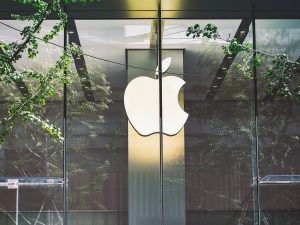While few would argue that traditional car companies have been overly concerned with the environment, fuel economy, or even technological innovation in the past, they certainly know how to hop on a trend when there are billions (or hundreds of billions) of dollars up for grabs. According to a report by Allied Market Research published in January of this year, the electric car market was pegged at more than $163 billion in 2020, and this number is forecasted to reach nearly $824 billion by 2030, for a compound annual growth rate (CAGR) of 18.2% from 2021 to 2030.
With all this potential revenue apparently up for grabs, it is no wonder that seemingly every carmaker is coming out with or already has an entirely electric car (in industry speak, a battery electric vehicle, or BEV) on the market.
It should come as no surprise that Tesla is the dominant player in the electric car market and has been for quite some time – no other carmaker comes close. Registration data shows that, for the entire year 2020, Tesla owned nearly 80% of the market. In Q4 2021, that percentage still remained high at nearly 70%, with Nissan coming in a distant second at just over 8.5%.
While traditional carmakers seem to be slowly making inroads into Tesla’s outsized share of the market, many observers are turning their gaze to other industries entirely in search of contenders to Tesla’s dominance. One company in particular that has received much attention is Apple.
It is widely known that the tech company started work designing an electric car worthy of the Apple name as far back as 2014 under the codename “Project Titan.” The Apple Car project has shifted and changed several times in the intervening years, and at one point in 2016 it was even rumored to have been abandoned entirely. In 2020, however, it was back on, and if anything it looks as though Apple has actually upped the ante on its electric car concept.
It is now rumored that the company is working on a fully autonomous self-driving vehicle that will go further than any manufacturer has to date. It will require no user intervention whatsoever, and it will not even be equipped with a steering wheel or pedals.
It appears Apple is aiming to be as disruptive to the electric car market as it was to the mobile phone market, and the tablet computer market, and the portable audio player market, and the personal computer market before that. But will it be able to find success in an arena so disparate from those it has conquered before?
Apple, for one, clearly thinks so. It is unlikely to settle for anything less, given its track record of pioneering achievements and the number of years (not to mention the money) it has invested in its current project. If any company has the funds, and the talent, to make fully autonomous, electric, self-driving cars a reality, it’s Apple. Now many are wondering if it will have the same effect it had on, say, the mobile phone market, when it effectively put several players out of business.
The story here will likely be the same as it has been so many times before. The larger, well-established, well-funded players (e.g. Ford, Nissan, BMW) may be late to the party or offer a product that is not quite as good as Apple’s, but they’ll survive through sheer volume and availability. They’ll become the generic, store-brand colas of the electric car world – cheaper, perhaps a bit less tasty, but a satisfactory substitute when one can’t get the real thing. The smaller, high-end players (e.g. Fisker, Rimac) will go on catering to those few who can afford their unique products and appreciate their subtleties. They’ll be the artisan colas, complete with all-natural flavors and real, organic sugar. But for those carmakers left in the middle, the writing is on the wall and their days are numbered. There is little chance they will be able to survive with two giants like Tesla and Apple crowding them out. After all, what chance does any cola brand have today against the likes of Coke and Pepsi?




















